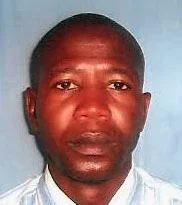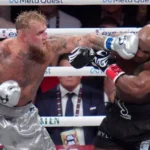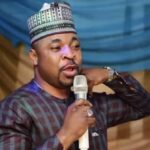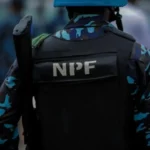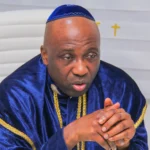Afolabi Gambari
Give it to President Bola Tinubu when it comes to being a consummate strategist. For sure, this trait may not have worked inch-perfect in many areas, specifically the economy and in generally making life more meaningful for the overwhelming majority. But it makes him no less a strategist still.
Whatever may have ailed the Tinubu administration’s maiden Chief of Army Staff, Lt General Taoreed Lagbaja, leading him to be taken to an undisclosed hospital in an undisclosed country is not particularly the topic here. But the suspense that the army chief’s absence from office generated, in addition to the tension in the army hierarchy leading to a rather intense lobbying to replace him must have caused Mr. President some worry, especially about the stability of his government and even the country’s democracy.
Perhaps, some persons somewhere and somehow may have positioned themselves as capable replacements for the ailing general, motivating them to exacerbate the tension that led to the death rumour of Lagbaja and the swift debunking of the rumour by the Army Headquarters; even though the whereabouts of the general and his health condition remained unknown.
By Wednesday, October 30, Tinubu thought he had had more than enough. He appointed the Commander of the elite Infantry Corps of the Nigerian Army in Jaji, Kaduna State, Major General Olufemi Olatubosun Oluyede as acting Chief of Army Staff in a statement, “pending the return of the indisposed substantive Chief of Army Staff, Lt. General Taoreed Abiodun Lagbaja”. It mattered less that the lobbyists’ ambition had been swiftly terminated; what mattered was that peace was restored in the Nigerian Army for the sake of the country.
Sadly, the Presidency announced the passing of Lagbaja on Wednesday, November 6, bringing to a close all speculations regarding his ill health. A few hours later, the acting army chief was in the office of President Tinubu being decorated with a new rank of lieutenant general and he would vow to “sustain the vision” of his predecessor.
On Monday, October 28, Hon. Alex Ikwechegh, representing Aba north and south in the House of Representatives, who had gone into a deranged mode about a week before, unleashed the most needless (and senseless, if you like) assault on an Abuja cab driver, had returned to his senses. But not until after the whole sane world had come down on him over his insanity.
Ikwechegh issued what he called a statement of regret over his action which by then had gone viral, obviously to his own great discomfort and unmitigated shame. “I am seeking professional counselling to ensure that such behaviour never happens again,” he said in the statement. “Professional counselling” indicated admittance of insanity, for which he now sought a permanent cure. But how could his constituents not have noticed this while investing their hope in him as their representative?
Anyway, it seemed more troubles lay ahead for Ikwechegh. On October 30, he was arraigned at an Abuja magistrate court on a three-count charge of abuse of office, assault and threat to life, following allegations by the Inspector General of Police that he assaulted a cab driver, Stephen Abuwatseya, outside his Abuja residence. But he would still heave a sigh of relief as he was granted bail after pleading “not guilty” and the case was adjourned till November 8 for hearing.
Thanks to the Federal Government’s latest decision to return to the old order of the National Sports Commission (NSC), away from the assumably ineffective “Ministry of Sports”, it is now a new dawn for Nigeria sports. Or so it seems.
Mallam Shehu Dikko, a quantity surveyor who had hovered around football administration in the country for over 20 years, surprisingly emerged as Chairman of the re-invented NSC ahead of several seasoned all-round sports experts that Nigeria has produced over the years.
On October 30, one week after his appointment, Dikko unveiled what he called his Master Plan to turn around Nigeria’s sports for good and called himself “a departure from the past of lack of purpose”, saying he had arrived with “a new direction”.
DIkko stated emphatically: “We cannot continue to run in cycles. We need to have a different approach because, in my view, competitions are what we call “consumption” because we just take scarce resources and burn out without any impact on the domestic sports ecosystem and the Nigerian economy. We have to go back to “production” which is deliberate sports development where we set the structure right, set the framework and put together good parameters to have a sustainable sports development system which will naturally give us a solid sports economy and guarantee competitive participation in international competitions.”
Well, has all the foregoing not been said by all the predecessors of Dikko? So, if the new sports helmsman means what he has just said, he would need to administer the sports differently so that different results would also surface. If he does not realise this, well, too bad. Good luck to him.
Nigeria participated in World Polio Day marked on October 24 with emphasis on “stamping out polio from the Nigerian firmament through a collective effort”. A “total war” was also declared on measles and other preventable diseases afflicting children in the country.
At a gathering in Lekki, Lagos where the event was commemorated under the auspices of UNICEF Nigeria, the who-is-who among music stars and celebrity actors from across West and central Africa were also present; having collaborated to release a new song titled “No more zero doses” to help drive childhood immunisation into people’s consciousness.
It would have been thought polio should not be an issue of discussion in Nigeria in 2024 after the World Health Organisation (WHO) had officially declared Nigeria wild poliovirus-free in 2020. However, it seems WHO had not reckoned the political undertone to virtually all issues of importance in Nigeria, especially where large sums of money from the government are involved. Let us just say that WHO still warned at the 2020 declaration, after all, that “achieving this milestone is not the end of the job as all children under five years must continue to be vaccinated against vaccine-preventable diseases”. Perhaps, too, WHO should have appealed to the conscience of government officials whose stock in trade is the diversion of public funds allocated for the vaccination to complete its task.

